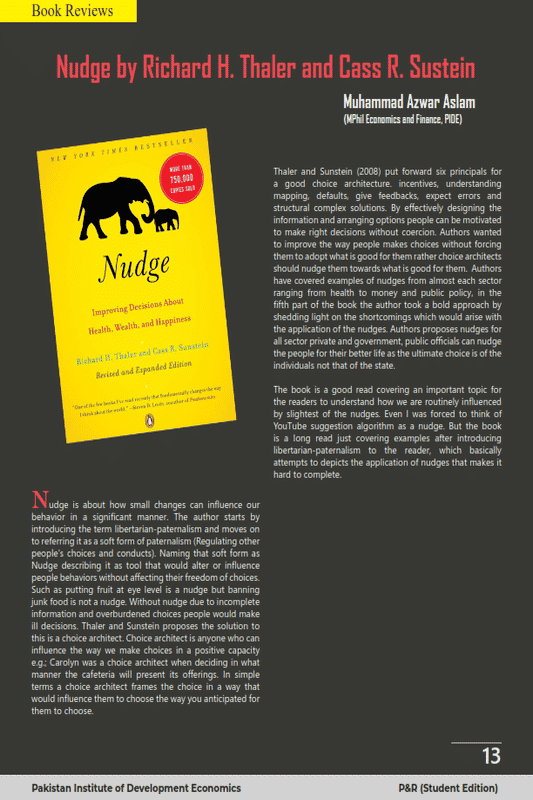Nudge By Richard H. Thaler And Cass R. Sustein (Book Review)
Nudge is about how small changes can influence our behavior in a significant manner. The author starts by introducing the term libertarian-paternalism and moves on to referring it as a soft form of paternalism (Regulating other people’s choices and conducts). Naming that soft form as Nudge describing it as tool that would alter or influence people behaviors without affecting their freedom of choices. Such as putting fruit at eye level is a nudge but banning junk food is not a nudge. Without nudge due to incomplete information and overburdened choices people would make ill decisions. Thaler and Sunstein proposes the solution to this is a choice architect. Choice architect is anyone who can influence the way we make choices in a positive capacity e.g.; Carolyn was a choice architect when deciding in what manner the cafeteria will present its offerings. In simple terms a choice architect frames the choice in a way that would influence them to choose the way you anticipated for them to choose
Thaler and Sunstein (2008) put forward six principals for a good choice architecture. incentives, understanding mapping, defaults, give feedbacks, expect errors and structural complex solutions. By effectively designing the information and arranging options people can be motivated to make right decisions without coercion. Authors wanted to improve the way people makes choices without forcing them to adopt what is good for them rather choice architects should nudge them towards what is good for them. Authors have covered examples of nudges from almost each sector ranging from health to money and public policy, in the fifth part of the book the author took a bold approach by shedding light on the shortcomings which would arise with the application of the nudges. Authors proposes nudges for all sector private and government, public officials can nudge the people for their better life as the ultimate choice is of the individuals not that of the state.
The book is a good read covering an important topic for the readers to understand how we are routinely influenced by slightest of the nudges. Even I was forced to think of YouTube suggestion algorithm as a nudge. But the book is a long read just covering examples after introducing libertarian-paternalism to the reader, which basically attempts to depicts the application of nudges that makes it hard to complete.




